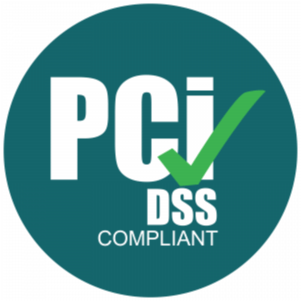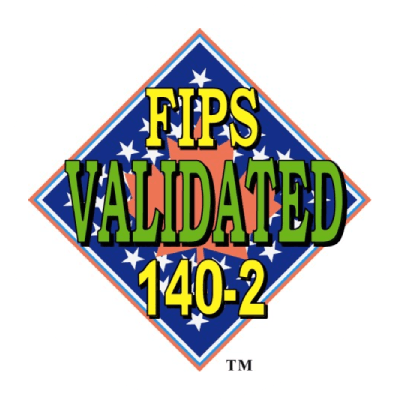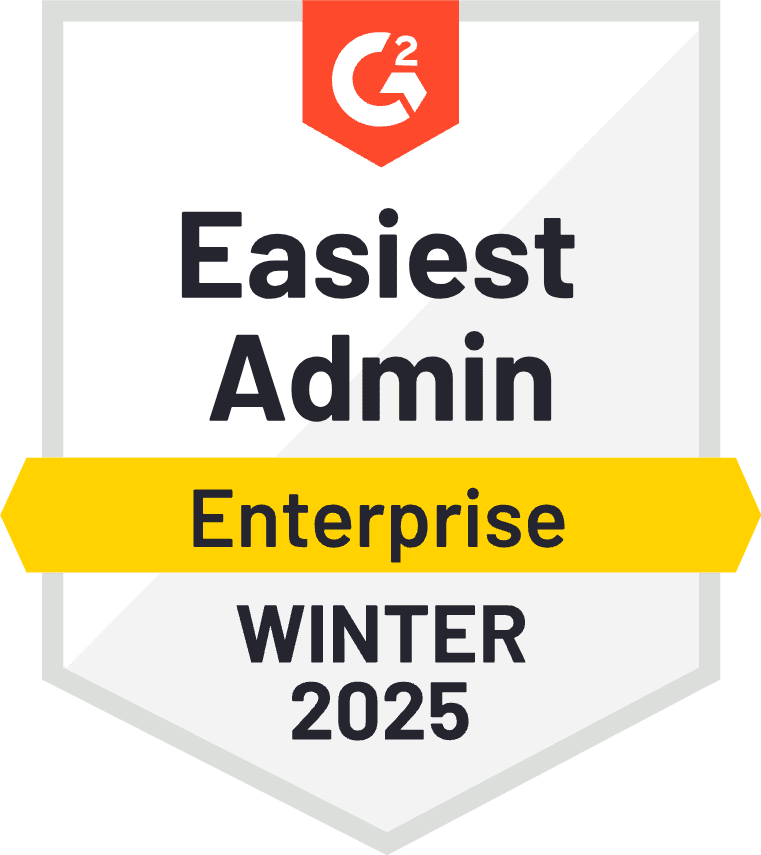Secrets Management Glossary
Check out the secrets management and secure remote access terms below and click to learn more.
-
Access Control
Explore our comprehensive glossary to understand different access control systems, from DAC to ABAC, and how they secure physical and digital assets in various environments.
-
API Key Management
What Is API Key Management? API key management refers to all the policies and practices an organization uses in order to monitor and maintain its set of API keys. Consequently, the term also refers to tracking how APIs are being used throughout the business. There are many factors and actions that API key management encompasses:…
-
AWS Key Management
AWS Key Management Service (KMS) allows you to create, manage, and control the cryptographic keys that are used to protect your data. What You Can Do With KMS Using this tool, your organization has more control and access over the data you choose to encrypt and protect. Because these functionalities are integrated into the services…
-
Azure Key Management
Azure key management, also called Azure Key Vault, is an offer Microsoft provides to its cloud application users to provide a stronger cybersecurity posture. What Does Azure Key Vault Cover? Microsoft specifies that its key management service covers the following aspects of corporate cybersecurity: Keys: Azure supports the creation, modification, and general administration of encryption…
-
Bring Your Own Key Encryption (BYOK)
In today’s cloud-driven workplace, managers now worry about cybersecurity and how to protect their organizations in the face of data breaches and login theft. There has been a rise of Bring Your Own Key (BYOK) encryption methods for cybersecurity providers. Here’s how this trend will impact your ability to promote business agility and security.
-
Certificate Authority
A certificate authority (CA) is an organization that validates the identities of websites, companies, individuals, or other entities by issuing cryptographic keys found within digital certificates. HTTPS has become the default standard for many online services, leading to increased usage of certificates. What Are Digital Certificates and CSRs? Digital certificates are electronic files used to…
-
Certificate Lifecycle Management
Certificates are a type of secret used to authenticate access to sensitive company resources. They protect data in transit and expire after a set time. Certificate authorities manage these certificates throughout their life cycles to maximize security while ensuring productivity in use.
-
Cloud Secrets Management
Cloud secrets management is something every large enterprise needs to consider when it comes to creating airtight security processes. Learn everything you need to know about cloud secrets management, best practices, and other actionable information.
-
Container Secrets Management
Secrets management is vital to software containerization, and keeping the workflow secure is especially important. Containerized applications are becoming more popular thanks to the improved flexibility. Here are the unique challenges, best practices, and general information regarding containerization and how modern businesses deal with cybersecurity through container secret management.
-
Data at Rest vs. Data in Transit
Whether it’s at rest, in transit, or even in use, data requires proper protection procedures to be used by enterprises and IT teams. How do you stop cyberattacks from breaching your sensitive information? Understanding how data interacts with the network around it goes a long way to solving the challenges associated with data security.
-
Digital Transformation
The digital transformation is revolutionizing the way we do business, produce our services, and interact with customers. Regardless of industry, no company can miss out on the benefits of going digital despite some of the security challenges such a switch would entail. Find out how to make a smooth transition today.
-
Dynamic Secrets
Secrets are well-known to anyone in a DevOps or IT department. More professionals are seeing the benefit of dynamic secrets over static secrets, the former of which provide better security and more insight into permissions across a company. Handling a dynamic secret vault should be your next priority to ensure data security in an ever…
-
Encryption Key Management
Have you taken a look at how your business handles enterprise encryption key management? The field is vital to the efficiency and digital security of your workflow. Today’s demanding market requires more than just encryption; you have to manage your keys well enough to stay competitive. Take some time to learn the best practices.
-
Enterprise Key Management System (KMS)
Enterprise key management systems refer to systems that cloud service companies provide to help you encrypt your data and keep it safe. Multiple options for data encryption typically exist, like digital secrets lists or database protection. With enterprise management, you can access your encrypted keys on multiple different databases and operating systems.
-
Hardware Security Module (HSM)
Hardware security modules use the Root of Trust cybersecurity concept to secure cryptographic activities for mission-critical business activities. Preventing data breaches and key loss is essential to staying secure in today’s threat-laden environment, so any manager should be versed in HSM technology.
-
Identity and Access Management (IAM)
Identity and access management is a popular talking point for business administrators, especially those working in IT or cybersecurity fields. What exactly is it, and what can it do for the security of your organization? Let’s talk about what makes up an IAM system, why it’s important, and the benefits you can expect from taking…
-
Identity Fabric
Identity fabric is a unified approach to managing secure access, connecting tools and automating processes for both people and machines.
-
Just-In-Time Access
Just-in-time (JIT) access is the implementation of the principle of least privilege in enterprise cybersecurity. By minimizing the amount and duration of access to critical company resources, you reduce the threat of potential cyberattacks on your organization. Building JIT into your workflow involves adopting a central vault or automation platform to make administering your secrets…
-
KeyConf 2021
Akeyless is proud to bring you KeyConf, the only security event focused on secrets management.
-
Kubernetes Secrets Management
Enterprises of all sizes use secrets to help secure their Kubernetes deployments. All administrators need to understand how secrets vaults work and other best practices for handling secrets management, including a brief rundown of the risks and challenges of maintaining enterprise-grade security in a Kubernetes environment.
-
Machine Identity Management
Explore the fundamentals of Machine Identity Management (MIM), including how to manage digital credentials and certificates for enhanced enterprise security. Learn best practices for PKI, credential lifecycle, and overcoming MIM challenges.
-
Multitenancy
The backbone of modern cloud computing, multitenancy is a software architecture that enables multiple instances of a program to run concurrently in a single virtual environment. Find out the benefits of this concept, how it works, and how it relates to cloud computing, Kubernetes, and the Akeyless Terraform Provider.
-
Non-Human Identity Management
Learn how Non-Human Identity Management secures API keys, certificates, and service accounts. Discover why managing these identities is essential for reducing risk, streamlining automation, and achieving operational efficiency in today’s multi-cloud environments.
-
Principle of Least Privilege
The principle of least privilege (PoLP) states that users must only have access to specific resources for a set amount of time. There is no standing access provided to any user under this principle. Access is granted upon request and then removed once it is no longer needed.
-
Privileged Access Management (PAM)
Keeping secrets safe from potential cybercriminals should be at the top of the priority list of any enterprise or business. Privileged access management is an entire field of strategies and mindsets that focus on protecting company secrets and monitoring privilege activity. It’s worth talking about some best practices and other privileged access management tools/software.
-
Role-Based Access Control
Are you interested in improving the cybersecurity of your organization? Do the stories in the news regarding data breaches impacting even major enterprises frighten you? Take some time to learn secrets management best practices to protect both you and your clients from a costly digital security incident. Threats will always be around, so businesses need…
-
Root of Trust
Root of trust is a critical concept to understand in modern, enterprise-level cybersecurity. Any IT professional or manager deserves to know about the root of trust and related concepts like the chain of trust and HSMs. Learn how to create a trustworthy digital environment in a world of cyberthreats.
-
Secret Rotation
Secrets serve as the lifeblood of modern enterprise-grade cybersecurity. They serve as the best tool for access control, and many tools and platforms businesses use have features to manage them. Secret rotation is one of the jobs that must be in every security professional’s repertoire.
-
Secret Sprawl
Keeping secure in today’s vulnerable business environment is an important skill. Managers, IT professionals, and cybersecurity experts everywhere deal with secrets management, and a recent issue that’s been at the forefront of the debate is secret sprawl. What is it, what does it cause, and what can you do to address it?
-
Secret Zero
Dealing with the “secret zero” dilemma is a challenge for cybersecurity experts in DevOps teams. Cloud platforms have largely mitigated the issue, and different service providers have their own solutions to tackle the secret zero problem. Find out how to protect your company from data theft or regulatory noncompliance.
-
Secrets Management As-a-Service
Secrets management is becoming an increasingly vital part of handling business, yet the challenges DevSecOps administrators face grow by the day. Consider adopting a secrets management platform in an “as-a-Service” model and gain the benefits of this new cloud-based approach to network security.
-
Secrets Management for Audits
This post explores the essentials of secrets management for audits, detailing tools, processes, and compliance challenges to ensure effective protection and adherence to industry standards. Learn how to enhance your security protocols and prepare for audits with confidence.
-
Secrets Management For CI/CD Pipelines
CI/CD pipelines create an agile working environment that’s necessary for modern application development and delivery. However, securing the secrets that empower this workflow can be a challenge with constantly updating code. Any modern management team must understand some best practices for secrets management in complex CI/CD pipelines.
-
Secrets Management for Compliance
Explore the intricacies of secrets management and its pivotal role in ensuring regulatory compliance across frameworks like GDPR, ISO 27001, and SOC 2.
-
Secure Remote Access
Secure remote access aims to improve the security posture of companies as workflows become more remote and mobile. With the right technologies like VPNs, MFA, PAM, and many others, achieving business agility without compromising on cybersecurity will keep your organization competitive. Find out why secure remote access matters, how to achieve it, and the tools…
-
Service Account Definition
Companies use a large number of user and service accounts every day. Users and applications communicate and pass information amongst themselves to perform the business’s workflow. How do you ensure data security in such a complex network? Service account management has become a field in and of itself. Here’s how you can get started.
-
SSH Key Management
You can either use a traditional password for the authentication process or, more likely, an SSH key. The latter option is more secure and easier to use, but a business needs proper SSH key management strategies to ensure a positive cybersecurity posture. Understanding SSH Keys In an SSH exchange, two keys (a key pair) are…
-
Static Secrets Definition
Make sure that version control is built-in to the way your enterprise manages the secrets vault. Static secrets must change over time for security purposes, and version control prevents accidental data losses and inefficient secrets management. Learn about how this pillar of software design has become so important with vault managers.
-
Static Secrets Versioning
Make sure that version control is built-in to the way your enterprise manages the secrets vault. Static secrets must change over time for security purposes, and version control prevents accidental data losses and inefficient secrets management. Learn about how this pillar of software design has become so important with vault managers.
-
Tokenization
Tokenization replaces sensitive data with non-sensitive tokens, enhancing security and simplifying compliance. Learn how this method protects data in payment processing, testing environments, and regulated industries like finance and healthcare.
-
Vault Secrets Management as-a-service
Vault-as-a-Service, or VaaS, is a cloud service offering vault and secrets management to clients via online storage. Vaults can be spun up in minutes and are cost- and time-effective, allowing B2B and B2C clients to save money while increasing the accessibility of their vault. Cloud services offer increasing privacy and security and 24/7 support for…
-
Vaultless® Secrets Management
Explore how Vaultless® Secrets Management eliminates the complexity of traditional vaults. Learn how it leverages SaaS and Distributed Fragments Cryptography™ to secure sensitive data, streamline operations, and reduce costs. Discover why it’s the future of secrets management in modern IT.
-
What is Secrets Management?
Are you concerned about the security of your sensitive data? With the increasing risk of cyber threats, managing secrets and credentials is more critical than ever. Secrets management involves securely storing and managing secrets such as certificates, SSH keys, API keys, credentials, tokens, passwords, and sensitive data. Implementing a robust secrets management strategy is essential…
-
What Is Vault?
Vaults are a must-have for any enterprise today, especially in a corporate environment so laden with cybersecurity risks. Automate a vital function of DevSecOps by adopting a secrets vault platform, which will manage all your passwords, SSH keys, certificates, tokens, and other secrets. Having everything in one place makes management efficient and secure.
-
Zero Standing Privileges
In today’s competitive and risky environment, businesses must adopt new strategies and practices that promote cybersecurity. Zero Standing Privileges should be at the forefront of your business strategy for this reason. Learn how it and related practices like Just-in-Time Access and secrets management strengthen your organization.
-
Zero Trust Model
A Zero Trust Model is an approach to digital security that assumes everyone, regardless of rank or claimed identity, must authenticate and authorize itself continuously before accessing critical systems or data. Zero Trust diverges from traditional perimeter-based security, as modern reliance on cloud computing has blurred the boundaries of what is considered the “perimeter.” When…
-
Zero-Knowledge Encryption
Working in the cloud makes us more efficient and flexible than ever before but also introduces the issue of cybersecurity. New cryptographic models have come out in response, and the most secure option is Zero Knowledge Encryption. Make sure that nobody, not even your cloud service provider, can touch the most sensitive data in your…
-
Zero-Trust Security and Remote Access
Zero-trust is a term used to describe the policy and philosophy of assuming every request originates from a potentially malicious source. Permissions and rights are granted on an as-needed basis. Zero-trust remote access applies this philosophy to machines, employees, clients, and partners.















